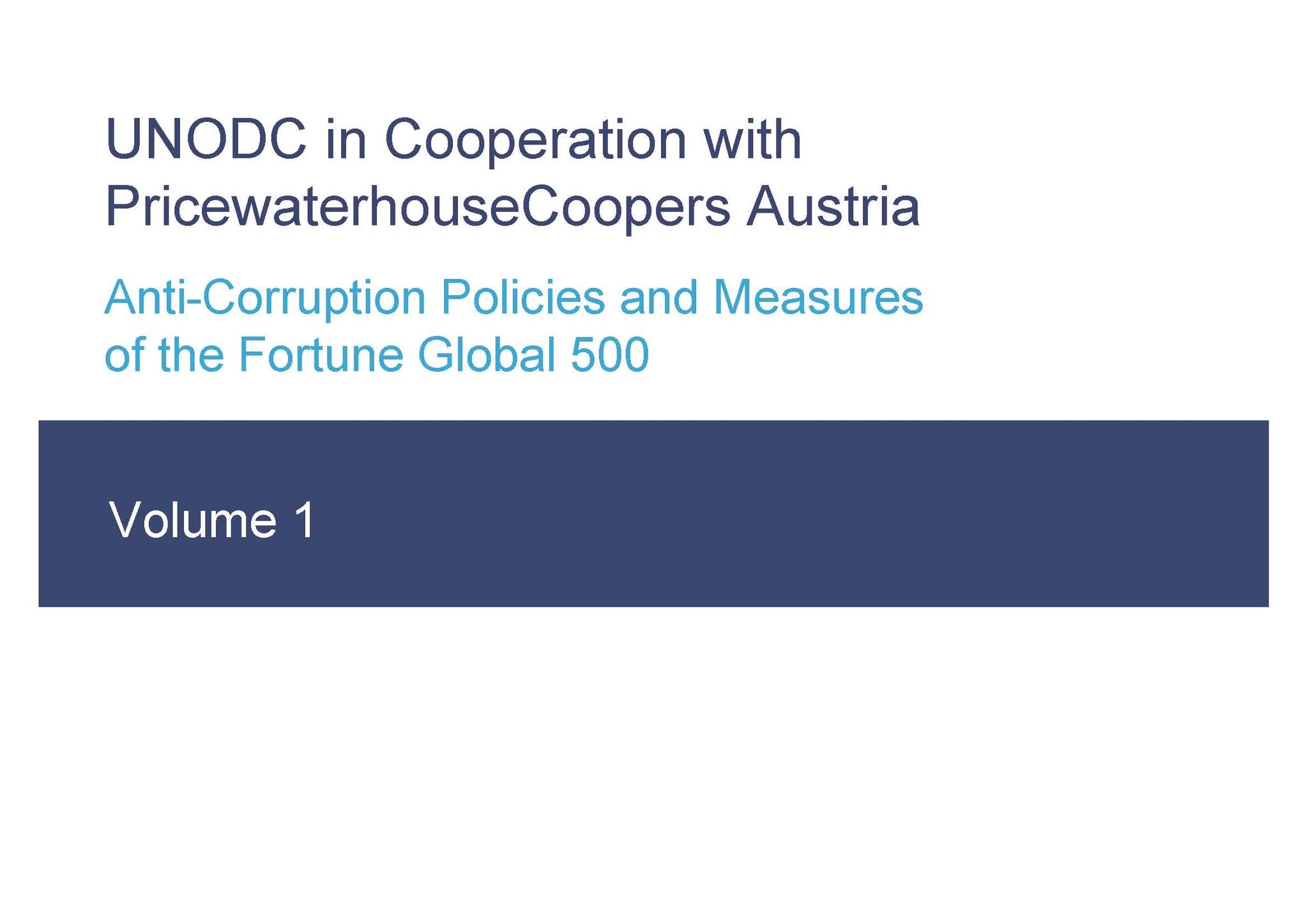Anti-Corruption Policies and Measures of the Fortune Global 500
-
There are three myths about corruption. First, it wasn’t me – it was the other guy. That’s wrong. Corruption involves two parties – someone offering money and someone else accepting it. Both are guilty.
Second, corruption is a victimless crime – it’s just a lubricant to grease the wheels. No, corruption erodes integrity, undermines trust, is a hidden overhead cost, and can destroy reputations.
Third, there’s nothing that can be done about it – it’s a part of doing business. Wrong again. There is nothing inevitable about corruption. The less it is tolerated, the more a culture of cheating will be replaced by a culture of integrity.
Generally, businesses want to do the right thing. But there are times when executives find themselves in tricky situations where a bribe is offered in order to gain a competitive advantage, or to facilitate a deal. What should be done?
This report, produced by the United Nations Office on Drugs and Crime (UNODC) in collaboration with PricewaterhouseCoopers (PwC), looks at what companies in the Fortune Global 500 (2008 Index) are doing to fight corruption. It highlights a range of measures, and different approaches. While there is no one-size-fits-all, businesses should not go below international standards contained in the United Nations Convention against Corruption. For example, a facilitation payment is just a fancy name for a bribe, yet some companies allow them up to certain threshold or under certain circumstances – or even consider them tax deductible. Some companies provide whistleblowers full anonymity, others promise that such employees will not be exposed to retaliation. Greater harmonization is needed, in line with international standards, to protect businesses and their employees against corruption.

